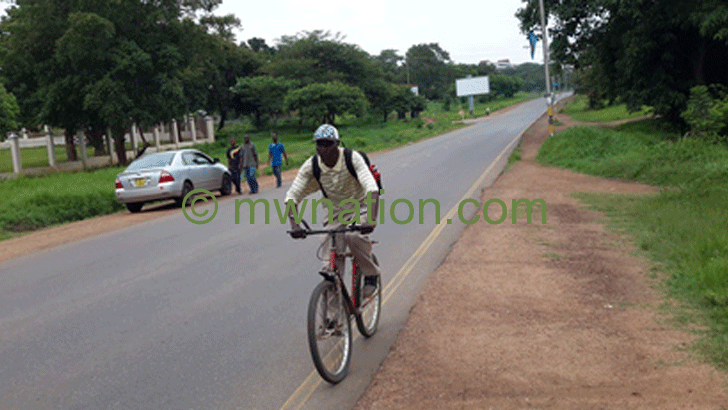Reverend petitions APM over injustice
Reverend Flywell Somanje relived the bravery and empathy of martyr John Chilembwe by undertaking a 130-kilometre bicycle ride to Lilongwe, to petition President Peter Mutharika to assist more than 1 000 families of former tobacco estate farmers reportedly living under near-slavery conditions in Kasungu.
The man of the collar stormed the main gate of Kamuzu Palace in Lilongwe on Friday at 10:30am, nearly 28 hours after he had embarked on his solo, top-level advocacy for justice from his base at Mtunthama, in Kasungu.
The reverend-centred oddity seemed the perfect script –taking place after 100 years, almost to the day, when Chilembwe, who was also a pastor, spearheaded the fight for freedom and justice in the country after standing up to injustices perpetrated by white settlers.

petition to Mutharika
At the Kamuzu Palace main gate, however, Somanje had to wait for about one hour, initially as he was advised to package his petition in a secure envelope. But farmers who need to be assisted urgently, as they have no land and food for their growing families.
In its recent research report, the Millenium Information Resource Centre (Mirece), a Kasungu-based research and advocacy body Somanje runs as its programme coordinator, indicated that the stranded people had travelled to Kasungu, many years ago, to try and find ‘greener pastures’ on tobacco estates which had been thriving then.
The report noted that things took a turn for the worse when Press Agriculture Limited (PAL), which engaged most of the workers, ditched tobacco farming to concentrate on other types of farm projects.
Many of the affected farmers, the report went on, failed to return to their homes –mainly in Thyolo, Mulanje, Ntcheu, Phalombe,Chiradzulu, Dedza and Ntchisi– thereby settling around PAL estate numbers 39, 26, 25 and 23.
The settlers have failed to settle in nearby villages, where some indigenous people have tended to turn them away. Some of the former tenants have often been arrested for encroachment on the PAL estates, especially as they sometimes lie idle for years on end.
Somanje told reporters yesterday that the petition urges Mutharika to ask PAL to donate some of its estates, on humanitarian grounds, to the stranded people. “We also want the President to order a stop to the harassment and arrests of the former tenants until we hold substantive discussions around the pressing issues we face,” he added.
The reverend said PAL needed to either help repatriate the stranded people or offer resettlement land because these are people who had offered the company services in the past.
But PAL chief executive officer Alfred Nkhono explained that many of the queries against his company were based on a lack of knowledge on how his company works, including that fact that the firm does not use the tenancy system to recruit its labour, but that it normally has a permanent staff compliment of each estate, supported by general workers who are employed on a walk-in job-seeker basis.
Nkhono said when PAL stopped growing tobacco in the 2011/12 season, the company laid off some of its permanent and general workers, who were all paid their terminal benefits, including transport allowances for general workers and repatriation of laid-off workers to their home districts.
He said by last year, among other things, PAL transferred seven estates to government and nine others to Nasfam for public programmes benefitting local communities. n




